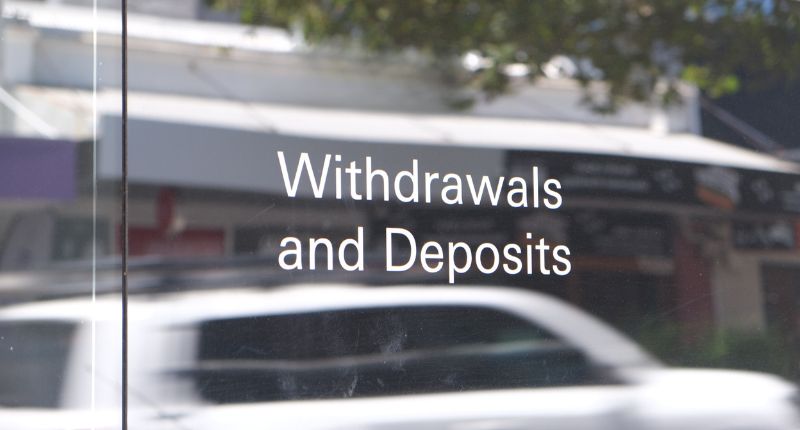- Lenders mortgage insurance (LMI) may be required, for deposits below 20%.
- Some government schemes allow for deposits as low as 5% without LMI.
- Benefits of paying a higher deposit include lower rates.
How much you need for a house deposit varies, depending on factors such as the price of the property, what grants, guarantees, and assistance measures are available, and whether you are willing to pay for LMI.
RateCity research director, Sally Tindall, told The Property Tribune the ‘magic number’ is typically 20%, with Compare Club home loan expert broker, Sophie Matthews, noting that some lenders are accepting a 15% deposit, however:
“The more you put in, deposit-wise, the more choice you and your broker have in terms of loans and lenders,” said Matthews.
How much is a deposit for a house?
Canstar ran the numbers for The Property Tribune, with house deposits typically amounting to several years’ worth of income.
| Capital City | Median Value | 20% Deposit | 5% Deposit | ||
| Deposit | LMI | Total Cost | |||
| House Prices | |||||
| Sydney | $1,293,529 | $258,706 | $64,676 | $63,093 | $127,769 |
| Melbourne | $911,007 | $182,201 | $45,550 | $40,403 | $85,953 |
| Brisbane | $792,125 | $158,425 | $39,606 | $35,131 | $74,737 |
| Adelaide | $704,448 | $140,890 | $35,222 | $31,242 | $66,464 |
| Perth | $606,563 | $121,313 | $30,328 | $26,901 | $57,229 |
| Hobart | $696,900 | $139,380 | $34,845 | $30,907 | $65,752 |
| Darwin | $585,732 | $117,146 | $29,287 | $25,977 | $55,264 |
| Canberra | $943,253 | $188,651 | $47,163 | $41,833 | $88,996 |
| Combined Capitals | $869,666 | $173,933 | $43,483 | $38,570 | $82,053 |
| Unit Prices | |||||
| Sydney | $797,806 | $159,561 | $39,890 | $35,383 | $75,273 |
| Melbourne | $596,413 | $119,283 | $29,821 | $26,451 | $56,272 |
| Brisbane | $504,487 | $100,897 | $25,224 | $16,658 | $41,882 |
| Adelaide | $444,157 | $88,831 | $22,208 | $14,666 | $36,874 |
| Perth | $418,623 | $83,725 | $20,931 | $13,823 | $34,754 |
| Hobart | $518,570 | $103,714 | $25,929 | $17,123 | $43,052 |
| Darwin | $365,397 | $73,079 | $18,270 | $12,065 | $30,335 |
| Canberra | $597,370 | $119,474 | $29,869 | $26,493 | $56,362 |
| Combined Capitals | $622,929 | $124,586 | $31,146 | $27,627 | $58,773 |
| Source: Canstar – 22/06/2023. House and Unit prices per CoreLogic Hedonic Home Value Index (May 2023). Lenders Mortgage Insurance (LMI) premiums per Helia LMI Estimator – assuming a loan term of 30 years, non first-home-buyer, owner-occupied loan. | |||||
Can I put in an even lower deposit?
You may find loans where lenders accept deposits as low as 10% or even 5%, said Finder‘s home loans expert, Richard Whitten.
“While it’s easier to save a smaller deposit, you’ll have to pay LMI,” said Whitten.
Matthews said LMI can cost anywhere from a few thousand dollars to over $10,000.
“We’d generally recommend keeping that money in your bank account and putting it towards your overall deposit,” added Matthews.
If the cost of LMI might push you beyond your budget, Tindall said a handful of lenders, including St George and Bank of Melbourne, will waive LMI costs for first home buyers with deposits between 15% to 20%; Tindall added that some banks, such as Westpac, may consider waiving the fee for certain professions such as doctors and nurses.
What grants and assistance are out there?
Whitten noted that the First Home Guarantee and the Regional First Home Buyer Guarantee allow eligible buyers to purchase a home with a 5% deposit.
“The government backs your loan and you borrow the remaining 95% while avoiding LMI.”
Opportunities are limited, with Tindall noting “35,000 spots [are] available to first home buyers every financial year, 10,000 spots for regional buyers and 5,000 places for single parents, who can apply with as little as 2% deposit.”
Some states are still providing lump sum payments to help first homeowners get their foot in the door, said Matthews.
“In WA, for example, first home buyers are given $10,000 towards the purchase of a new home (or towards building costs for a new home). In SA the grant is up to $15,000.”
“Applicants must meet certain requirements, but these grants can be used towards your home deposit. The grant schemes may include stamp duty discounts or exemptions as well. Stamp duty is usually the biggest secondary cost of purchasing your home.”
How will the stamp duty changes in South Australia and New South Wales affect me?
The scrapping of stamp duty in South Australia does not impact whether you need to pay a deposit or not, said Matthews.
However, it may mean you now have more money to put towards a deposit.
“In South Australia, changes to stamp duty mean first home buyers are no longer required to pay the tax on new properties up to $600,000 with concessions for properties up to $700,000, provided they are purchasing a new property, rather than an existing one,” said Tindall
“While this is likely to boost the deposit sizes for those first home buyers in South Australia planning to buy a new home, it will not change the current equation for existing first home buyers.
“It’s important to remember that no matter what concessions or schemes are available, neither take away the importance of having a healthy deposit when purchasing a home.”
That takeaway is more poignant in New South Wales, particularly for those banking on the soon-to-be-scrapped First Home Buyer Choice program under the previous state government; it will draw to a close from 1 July 2023.
“First home buyers looking at properties over the $1 million mark who were planning on opting for the annual land tax, may find they have less to offer as a deposit as they’ll be forced to pay stamp duty as an upfront cost,” said Tindall.
“Meanwhile, those first home buyers in NSW who were planning on forking out for stamp duty on a property below $1 million may end up having a bigger deposit because of the changes to the property price caps.”
Can I pay a larger deposit?
If you are able to pay a higher deposit for a house, you could benefit from lower rates.
“Your deposit size can, in many cases, dictate what interest rate you’re offered by a bank, with the sharpest rates often reserved for people with deposits of 40% or more,” said Tindall.
“For example, CBA’s lowest variable rate is currently 6.14%, however, this rate is reserved for new borrowers with a 40% deposit.
“Meanwhile, the lowest advertised variable rate for borrowers with less than a 20% deposit is 6.69%. That’s a 0.55 percentage point tariff for starting out with a small amount of equity.”
How much money do you need for a house deposit in such a circumstance? Forty per cent of $800,000 is $320,000.
Are there other ways to pay a deposit?
The First Home Super Saver Scheme allows you to make voluntary concessional payments (i.e., extra money paid on top of your mandatory super contributions) into your super account and then withdraw it, along with any associated interest/earnings, at the end of a 12 month period, said Matthews.
These contributions can form all or part of your deposit.
“A parent or relative can use the equity in their home to guarantee your loan,” added Matthews.
“This means you may not need a deposit at all. Your guarantor can use the equity in their home to cover your deposit and your bank will cover the rest, meaning you avoid paying LMI and higher interest rates.
“It’s important to note here that although your guarantor doesn’t have to actually pay the deposit — the equity in their home just acts as a guarantee — if you default on your repayments your guarantor is legally required to cover your costs. This may mean selling their home or coming up with a significant sum of money.”
~~
Before making any financial decisions, please do your own independent research, taking into account your own situation. This article provides factual information only and is not intended to imply a recommendation or opinion about a financial or credit product. See our Terms of Use.








